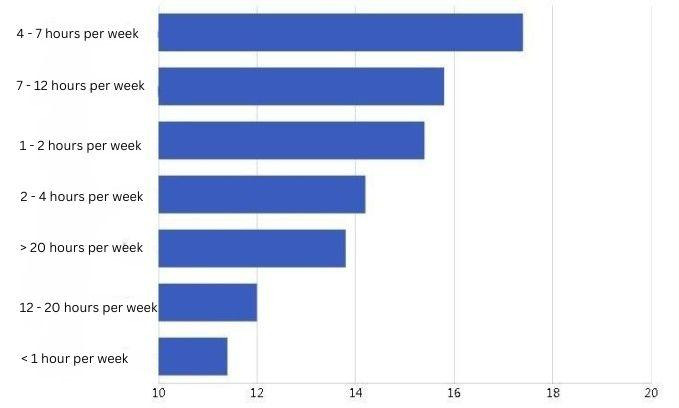
Strategies for Reaching a Broader Audience through Chinese to Indonesian Game Localization
Have you wondered how to effectively expand your game's reach in Indonesia? With rapid growth in terms of gamers population, Indonesia will be home to 192.1 million people by 2025—a huge potential waiting to be explored. One of the biggest challenges you will face, but must inevitably overcome, is the Chinese to Indonesian game localization.
This article covers various strategies that can help narrow this gap, so more gamers from Indonesia can enjoy your game.
Why is Indonesia the Most Potential Target Market for the Chinese Games?
Before investing in the Chinese to Indonesian game localization process, it's a good idea for you to know what makes this market so attractive for Chinese games. Let's delve into the main factors!
In the last week of August 2021, the National Press and Publication Administration (NPPA), a department that regulates gaming in China, issued a new rule limiting play hours for players under the legal age of majority to no more than 3 hours per week. An obvious goal, of course, is to reduce game addiction—one of the things Chinese people are most worried about.
As the Chinese government tightens its restrictions on gaming, game developers in China are starting to penetrate global markets, such as Indonesia which is the third largest mobile gaming market in the world (after Brazil and India).
 Source : Databoks.katadata
Source : Databoks.katadata
In addition, gamers in Indonesia are still young (according to the Ministry of Communications and Informatics or Kominfo, 46.8% are aged between 24 – 29 years), active, and ready to spend money on games. It was even recorded that Indonesian people's spending on games reached USD 2 billion per year or the equivalent of IDR 29.6 trillion (exchange rate of IDR 14,843 per USD).
Government policies regarding the duration of playing games are also looser than in China. The Statista report in 2021 shows that the majority of time spent by gamers in Indonesia playing games is4 to 7 hours per week. The percentage reached 17.4%.
Chinese to Indonesian Game Localization: Key Strategies for Success
To make your Chinese game a hit in Indonesia, the key lies in localization! Let’s explore some key strategies to successfully localize your game and capture the hearts of Indonesian gamers:
1. Think in the Target Language, i.e Indonesian
One of the important strategies for localizing Chinese games to Indonesia is to think in the target language, in this case Indonesian. Why is this important? This is because a good translation does not only concern changing the words from one language to another, but it must also consider the message and culture behind the text.
One of the more common issues that a Chinese translator will have is the awkward and unnatural translations that are notorious for being done word for word, resulting in what's often called Chinglish. Linguists often simply change Mandarin characters into Indonesian characters without considering the cultural context and local nuances.
As a game developer, you have to go further than just a literal translation. You need to understand how Indonesian players think, talk, and play.
Imagine you are an Indonesian player. What would interest you? What will make you feel connected to the game? By thinking in Indonesian, you can craft more natural dialogues, relevant jokes, and contexts that are more appropriate to the local culture.
A good Chinese to Indonesian game localization process should read as if it were originally written in that language. This means you need to have a target-oriented mindset when localizing creative content.
The best way to do this is to read texts in Indonesian that are similar to your type of game content. Learn and imitate this writing style to create a more natural and intuitive translation. For example, if your game is full of casual dialogue and humor, try reading light novels or comics in Indonesian to understand the nuances and rhythm.
2. Explore the Richness of Indonesian Culture
The process of Chinese to Indonesian game localization is not just about translating the language, but also about conveying the right cultural tone. When you incorporate local cultural elements into your game, you provide a more immersive and relevant experience for players.
For example, PUBG Mobile, a battle royal game from China was developed in Indonesian language. The Tencent team (developer of the mobile version of the PUBG game), presents Gundala as a new in-game character in PUBG Mobile. The presence of this character answers the desire of fans and the Indonesian community to include more local characters so that they are better known internationally.
PUBG has also created more contents adapted to local Indonesian wisdom. Ideally, these include the collection of batik costume items, ondel-ondel, in-game activities that are deliberately created with a Ramadan feel, etc. When players feel that the game reflects their culture, this will encourage purchases.
As a game developer, you can start by doing research on Indonesian pop culture, such as music, films, or the latest trends. Why not try incorporating these elements into your game? Or perhaps you could work with a local game translation agency to ensure that your game truly reflects Indonesian culture in an authentic way.
3. Master Game Terminology Before Starting the Chinese to Indonesian Game Localization
With the rapid development of the Indonesian gaming market, many people want to take part. However, if you don't have in-depth knowledge of the game and are not interested in learning about it, you will have a hard time producing natural and accurate translations.
For example, terms like 眩晕 (Stun) in MOBA games is often mistranslated by amateurs as "Faint". This shows that in-game skills or abilities cannot be translated directly. Without solid gaming knowledge, you won't be able to translate these terms correctly.
So, how do you familiarize yourself with gaming terminology? One of the best and most fun ways is to play Chinese games released in Indonesian.
For example, if you like playing 王者荣耀 (Honor of Kings), try playing a similar MOBA game like Mobile Legends: Bang Bang. Since these two China-made games have similar modes, it will be easier for you to understand and master the terms used in the game.
This way, you can have fun while learning Indonesian gaming terminology. Just switch to Indonesian in the language settings to see how the terms are translated.
Chinese to Indonesian Game Localization: Study Case of in-Game Dialogues
Let's take the example of translation and localization in the dialogue of Genshin Impact, one of the open-world role-playing games made by miHoYo which was developed with the Indonesian language option and then became a smash hit!
Example 1
To avoid inappropriate translation, it is necessary to adapt the context and use advanced translation techniques. For example, the reduction translation technique is demonstrated in the following example:
Dialogue in Chinese
我是愚人众执行官第十一席,「公子」 达达利亚。而你——哈,也是能招致纷 争之人,实在愉快。我们应该会很合得 来吧?
Dialogue in Indonesian
Saya pejabat eksekutif kesebelas dari Orang Bodoh, "Tuan Muda" Tartaglia. Dan kamu - ha, kamu juga yang bisa menimbulkan perselisihan, itu sungguh menyenangkan. Kita harus rukun. Ayolah? (I am the eleventh executive officer of the Fools, "Young Master" Dadalia. And you - ha, you can also cause strife, which is really fun. We must get along well. Come on?)
After Localization
Aku adalah Harbinger ke-11 dari Fatui, Childe, aku juga dikenal dengan nama Tartaglia. Kamu——sepertinya adalah seseorang yang bisa menimbulkan perselisihan juga, senang bertemu denganmu. Kita harus rukun-rukun, ya? (I am the 11th Harbinger of the Fatui, Childe, I am also known as Tartaglia. You——seems to be someone who can cause strife too, nice to meet you. We have to get along well, right?)
The localization of the dialogue above uses a reduction translation technique by removing the "ha" from 而 你 —— 哈 . Here, the word "ha" can show a side of Tartaglia's character.
“Kita harus rukun-rukun, ya? or We have to get along well, right?–having the intention to solicit or persuade. In the game's Indonesian translation text, Tartaglia gives the impression of a polite and friendly person, while in the Mandarin dialogue, this sentence shows that Tartaglia is a very confident person.
From Latin, the word “fatui” or “fatuus” can be translated as a fool or “Orang Bodoh”. Meanwhile, Harbinger is an executive officer of the Fatui organization.
Example 2
In the process of Chinese to Indonesian game localization, be careful of words that do not fit the context so that they can affect the translation results. For instance:
Dialogue in Chinese
感觉身体和头脑,都被穿过身体的风洗 净了。真舒畅。
Dialogue in Indonesian
Saya merasa tubuh dan kepala saya dibasuh bersih oleh angin yang melewati tubuh saya. Sangat menyegarkan. (I felt like my body and head were being washed clean by the wind passing through my body. Very refreshing)
After Localization
Rasanya seperti mental dan fisikku dibersihkan oleh angin yang melewatiku. Benar-benar menenangkan pikiran. (It felt like my mental and physical being was being cleansed by the wind passing through me. Really calms my mind.)
身 体和头脑 can be interpreted as “body and head”, but it doesn’t fit the context of the dialogue. Instead of translating it literally, it would be more relevant to interpret it as "mental and physical".
Conclusion
In conclusion, the process of Chinese to Indonesian game localization requires a careful and in-depth strategy to truly reach a wider audience. From thinking in the target language and understanding game terminology, to exploring Indonesia's rich culture, every step plays an important role in creating an authentic and engaging gaming experience.
To ensure the success of your game localization, trust experienced experts. Digital-Trans Asia is ready to help you in every step of the process of localizing Chinese games to Indonesia. With a team of experienced professionals who understand the intricacies of gaming culture and terminology, we guarantee high-quality and natural translation results.